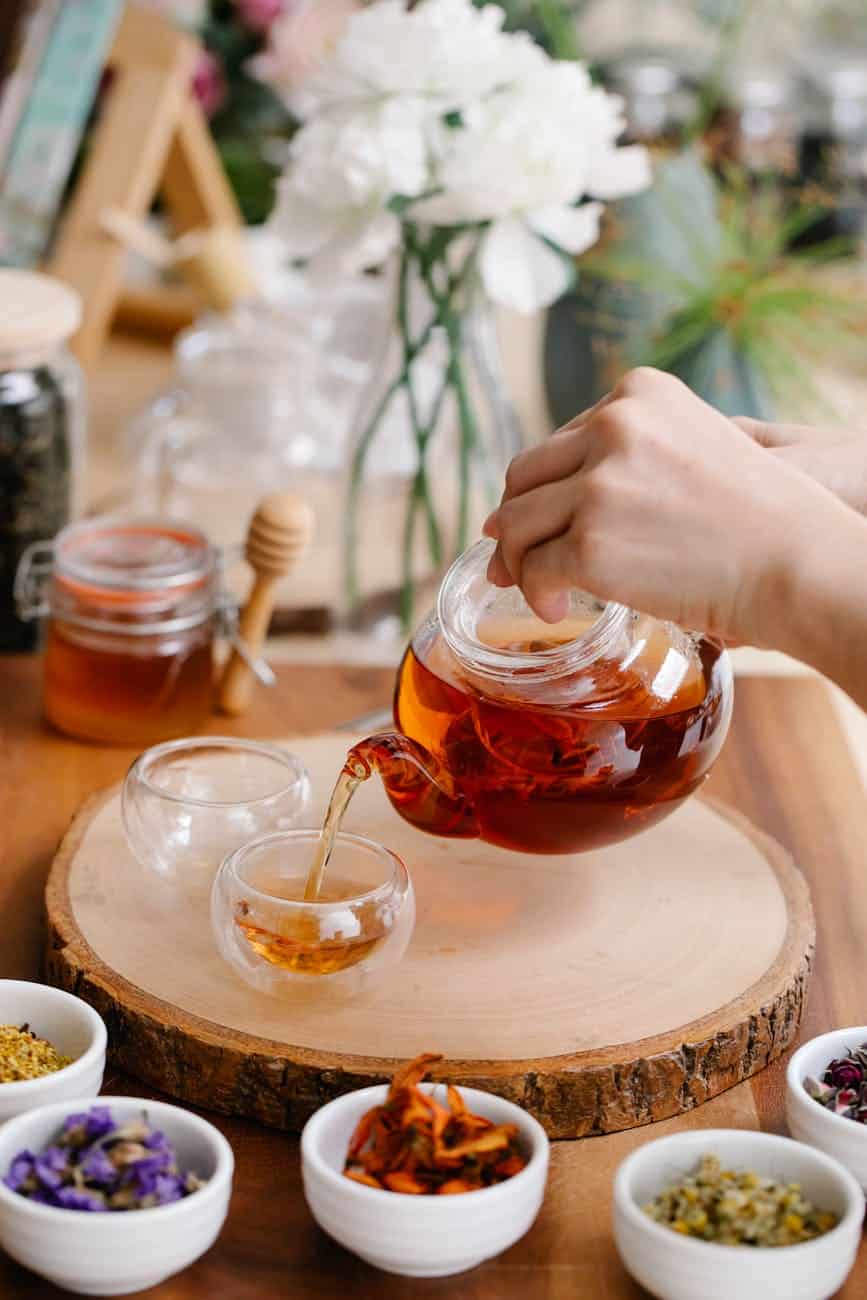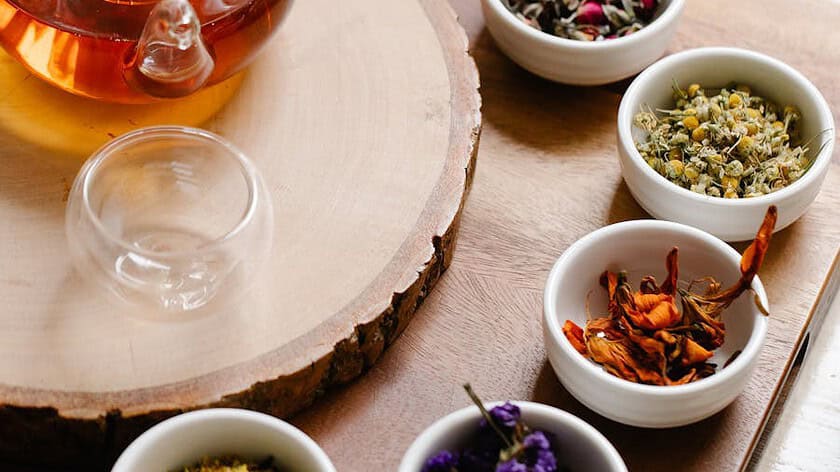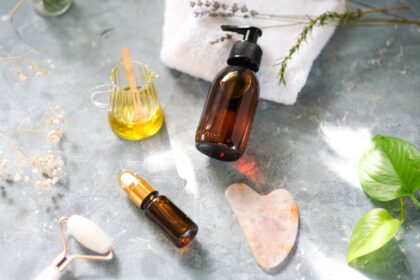Hey there, fellow wellness enthusiasts! 🌿 Are you ready to explore the incredible world of herbal remedies and unlock nature’s secrets to health and vitality? Today, we’re diving headfirst into the rich tapestry of herbal medicine – those magical potions crafted from Nature’s abundance. So, brew yourself a cup of some herbal tea ☕, and let’s get to learning.
🔍 Exploring the World of Herbal Remedies:
To truly appreciate the marvels of herbal remedies, let’s first unravel the mystery behind these botanical wonders. Long before modern medicine, our ancestors turned to plants and herbs for healing. Fast forward to the present day, and we find ourselves within a renaissance of herbal medicine.
What once seemed like ancient folklore is now being validated by modern science. Researchers are uncovering the biochemical complexity of plants, elucidating their therapeutic properties, and affirming what our ancestors knew all along – that nature holds the key to our well-being.
Disclaimer: I am not a doctor or healthcare professional. The information provided in this blog is for informational purposes only and should not be considered medical advice. It is not intended to diagnose, treat, cure, or prevent any disease. Before trying any herbal remedies or making changes to your health regimen, it is essential to prioritize your health and consult with a qualified healthcare professional. Individual health concerns and conditions may vary, and it’s crucial to seek personalized medical advice tailored to your specific needs. See full Disclaimer here.
🌼💚 Benefits of Herbal Remedies:
The wonderful thing about herbs is that they’re straight from Mother Nature herself, unlike many conventional medicines that are chock-full of synthetic chemicals. And the beauty of it? They’re often associated with fewer side effects.
But wait, it gets even better! These natural wonders are incredibly versatile. Whether you’re battling a cold, struggling to get some shut-eye, or combating a pounding headache, chances are, there’s an herbal remedy waiting to provide relief.
And let’s not overlook their accessibility. No need for a doctor’s prescription or a visit to the pharmacy – many of these miraculous herbs can be grown right in your own backyard or picked up at your local health food store.
Yet, perhaps the most captivating aspect of herbal remedies lies in their ability to empower. Utilizing herbal remedies often fosters a profound connection with your body and its innate healing mechanisms. It’s about seizing control of your well-being in a truly holistic manner.
🍵 Popular Herbal Remedies:
Enter the gentle giants of herbal medicine – Lavender, Chamomile, and Ashwagandha. These botanical powerhouses are renowned for their calming properties, gently coaxing our minds into a state of tranquility and serenity. Whether it’s a cup of Lavender-infused tea before bedtime or a soothing Chamomile compress after a long day, these herbs offer solace in times of stress.
Here are a few more popular herbs and how they can be used for medicinal purposes with links that I’ve included for additional sources:
- Echinacea: This herb is renowned for its immune-boosting properties. It’s often used to help prevent and alleviate symptoms of the common cold and flu. You can find echinacea in various forms like teas, tinctures, or capsules.
- Peppermint: Ah, peppermint – not just for freshening breath! Peppermint is fantastic for soothing digestive issues like bloating, gas, and indigestion. Plus, its refreshing aroma can also help relieve headaches and mental fatigue. Enjoy it as a tea or use its essential oil for aromatherapy.
- Ginseng: Ginseng is like nature’s energy booster. It’s commonly used to combat fatigue, improve focus and concentration, and enhance overall vitality. You can find it in teas, capsules, or as a liquid extract.
- Valerian Root: If you’re struggling with insomnia or anxiety, valerian root might be your new best friend. This herb has calming and sedative effects, making it great for promoting relaxation and improving sleep quality. Try it as a tea or in supplement form.
- St. John’s Wort: This sunny little herb is often used as a natural antidepressant. It’s believed to help lift mood, reduce anxiety, and alleviate symptoms of mild to moderate depression. Just be sure to consult with a healthcare professional before using it, especially if you’re on other medications.
- Turmeric: Known for its vibrant color and potent anti-inflammatory properties, turmeric is a superstar in the herbal world. It’s commonly used to relieve joint pain, support digestive health, and boost overall immunity. Add it to your cooking or enjoy it as a soothing turmeric latte.
🍃☕️ Digestive Health:
Ah, the delicate dance of digestion – orchestrated by our body’s intricate systems. Yet, sometimes the harmony is disrupted, leaving us with feelings of discomfort and unease. By understanding the medicinal properties of herbal remedies, we can utilize them to help restore balance to our digestive health. Here are some to name a few:
Peppermint, for example, has soothing properties.The menthol found in peppermint helps relax the muscles of the digestive tract, easing symptoms of indigestion, bloating, and gas. Whether enjoyed as a warm cup of peppermint tea or consumed through peppermint oil capsules, this herb offers a gentle yet effective remedy for digestive discomfort.
Another herbal ally in the realm of digestion is Ginger, celebrated for its versatility and potent healing properties. Ginger’s anti-inflammatory qualities make it a go-to remedy for calming upset stomachs, alleviating nausea and vomiting, and promoting overall digestive health. Whether added as spice to your recipe, sipped as a soothing ginger tea, or taken in supplement form, ginger provides a natural solution for digestive issues.

Along with those is Chamomile. With its calming effects, chamomile steps onto the digestive stage with grace. Known for its ability to calm inflammation in the gastrointestinal tract, chamomile offers relief from gas, bloating, and discomfort. A warm cup of chamomile tea proves to be a comforting companion, soothing the stomach and promoting relaxation, making it an ideal choice for easing digestive troubles.
💪 Immune Support:
These days, strengthening our immune system has never been more crucial. With common illnesses lurking around every corner, we need all the help we can get to fortify our body’s natural defenses. And that’s where herbal remedies shine brightest, offering a potent arsenal of immune-boosting herbs to keep us resilient and strong.
Thankfully, we have the mighty Echinacea, renowned as nature’s own immune tonic. This potent herb doesn’t just stand by; it actively rallies our body’s defenses, boosting our immune system to fend off invaders more effectively.
In addition, the humble Elderberry, packed with antioxidants like flavonoids and vitamins such as vitamin C. These nutrients work synergistically to bolster our immune response, helping to ward off infections and keeping us feeling vibrant and vital even during challenging times.
And let’s not overlook Astragalus, a revered herb in traditional Chinese medicine with a rich history of immune-boosting properties. Not only does Astragalus strengthen the body’s Qi, or vital energy, but it also enhances immune function, providing a robust shield against pathogens and promoting overall wellness.
🍃✨ Antioxidant Richness:
In the battle against free radicals, antioxidants are key. These mighty molecules neutralize oxidative stress and protect our cells from damage, keeping us feeling energized; promoting a sense of vitality and rejuvenation. Where do we find these potent antioxidants in abundance? You guessed it – in nature’s very own pantry of herbs and botanicals.
Take Turmeric, for example, with its golden hue and potent antioxidant compound, curcumin. Turmeric has a wide variety of health benefits, from reducing inflammation to supporting heart health and beyond. By swooping in to neutralize harmful free radicals, turmeric becomes a steadfast guardian of cellular health, enriching both body and soul.
Similarly, Ginger also serves as protection against oxidative damage.This herbal hero infuses dishes with its distinctive aroma and flavor while waging a valiant battle against cellular damage, elevating the body’s vitality.
And then there’s Green tea, a verdant treasure trove of antioxidants. Bursting with catechins like EGCG, green tea offers a refreshing sip of rejuvenation with each cup. From revving up metabolism to fostering heart health, this antioxidant-rich elixir infuses the body and mind with revitalizing energy, providing a natural solution for modern-day stresses.
So, whether you’re luxuriating in a steaming cup of green tea or enhancing your cooking skills with the dynamic duo of turmeric and ginger, these antioxidant-rich wonders help maintain good health and awaken your senses to nature’s bounty.
⚠️ Cautions and Considerations:
Before you rush to experience the healing potential of these herbal powerhouses yourself, let’s take a moment to discuss some important cautions and considerations. While herbal remedies offer incredible potential for health and well-being, they come with their own set of limitations.
It’s crucial to be mindful of what we introduce into our bodies and recognize that everyone’s body is unique. Considering our individual health conditions, doing thorough research is advised. Always consult with your doctor and ask questions before incorporating herbs into your routine. It’s important to proceed with caution to avoid potential harm to your health, as not all herbs are suitable for everyone.
💊 Potential Interactions:
First and foremost, it’s important to be aware that herbs can interact with medications and other supplements. Certain herbs may potentiate or inhibit the effects of medications, leading to unintended consequences or adverse reactions.
For example, St. John’s Wort, a popular herb used to alleviate mild depression, can interact with a wide range of medications, including antidepressants, birth control pills, and blood thinners. Similarly, Ginkgo Biloba, often touted for its cognitive-enhancing properties, can increase the risk of bleeding when taken with blood-thinning medications like Warfarin.
🛡️ Quality and Safety:
Another crucial consideration when using herbal remedies is the importance of quality and safety. Not all herbs are created equal, and sourcing matters. It’s essential to choose high-quality herbs from reputable suppliers to ensure purity, potency, and safety.
When shopping for herbal products, look for reputable brands that prioritize quality control and transparency. Avoid products that contain fillers, additives, or undisclosed ingredients. And whenever possible, opt for organic or wildcrafted herbs to minimize exposure to pesticides and other contaminants.
💡 Individual Variability:
It’s important to recognize that herbal remedies may not work the same way for everyone. We’re all unique individuals with different biochemistries, genetics, and health histories. It’s crucial to listen to your body and pay attention to how it responds to herbal remedies. Start with small doses and observe any changes in your symptoms or overall well-being. And if you have any concerns or questions, don’t hesitate to seek guidance from a qualified healthcare professional or herbalist.
Final Thoughts:
Well, my friends, we’ve marveled at nature’s incredible bounty and discovered the healing power of herbs firsthand. But perhaps the greatest lesson we’ve learned is this: while herbal remedies offer incredible potential for health and well-being, they’re not a one-size-fits-all solution. You want to approach herbal medicine with curiosity, caution, and respect – honoring the wisdom of our ancestors while embracing the advancements of modern science.
So, here’s to harnessing nature’s healing power and nurturing our bodies with the gifts that Mother Nature generously provides. May your journey with herbal remedies be filled with vitality, resilience, and radiant well-being. Cheers to your health and happiness! ☕✨





